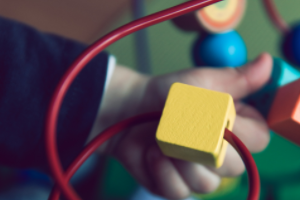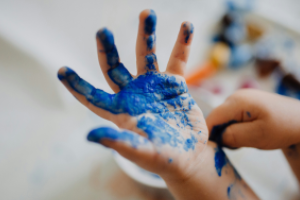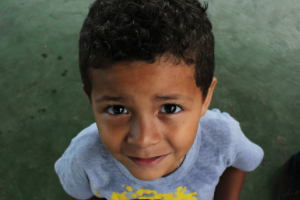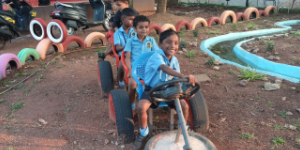Is there a lack of scientific awareness and rational thinking in our society? Are we witnessing a decline in the ability to question and criticize?
When school academic studies focus solely on exams and competitions, and opportunities for play are limited, certain natural aspects of children’s development may be stunted. In reality, childhood games play a crucial role in fostering and nurturing scientific awareness. If that is true, then in what specific ways does engaging in play during childhood contribute to the natural development of scientific awareness? Let us see.
Curiosity and Eagerness to Explore
Play always involves questions, experiments and investigations. The curiosity that naturally develops through play later paves the way for scientific inquiries, discoveries and findings.

Ability to Solve Problems
During play, one has to overcome obstacles, think critically, and find solutions. All of these are laying the foundation for scientific thinking.
Observation and Inference

Through play, one can observe cause-effect relationships and make inferences. For example, while playing with building blocks, they figure out how to make it more stable. They observe how different objects behave in water.
Hands on activities for Sensory Experiences

When children immerse in play, they use their fingers, hands, eyes, nose, tongue, ears, skin and other body parts. Along with the mind, they are refining, perfecting, improving and accomplishing their actions. They learn through active experiences where body parts, senses and mind work together. This is how scientific awareness develops.
Imagination and Creativity

Play encourages children’s imagination and creativity. They find novel solutions to problems, conceive new ideas. These are essential for novel scientific inquiries.
Communication and Cooperation
In group games, there is always interaction and sharing. In cooperative play, they share ideas and work together towards a common goal. These are the very skills needed for scientific work.

Childhood education should prioritize play and hands-on activities. The aim of schooling should not be to study in a worn-out, listless manner for someone else. The child should feel that they are doing what they enjoy, immersing in what they love. Getting this opportunity is their right.
But we see, the open playgrounds gradually disappearing, and neighborhood gatherings for outdoor play becoming increasingly rare. Children spend time mostly indoor and busy with their studies or/and with screen. While outdoor play is essential for children’s development, the lack of opportunities for outdoor activities can be compensated by offering suitable toys and games for indoor play.
Here are few suggestions of relatively inexpensive toys and games for your child:
- Magnetic Building Blocks
- Wooden Construction toys: Robotic hand, Telescope, Microscope
- Nature Exploration kits
- Chess and other similar Board games
- Puzzles
- Marble runs
Note: Images from freepik and unsplash are used in this blog.
Disclaimer: This post contains product affiliate links, which means we may receive a commission for any purchase made – at no extra cost to you.
